10 start with P start with P
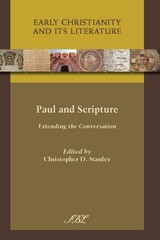
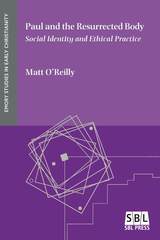
A new reading of Pauline theology, ethics, and eschatology grounded in social-identity theory and sociorhetorical criticism
Readers often think of Paul’s attitude toward the resurrection of the body in individual terms: a single body raised as the climax of an individual’s salvation. In Paul and the Resurrected Body: Social Identity and Ethical Practice, Matt O’Reilly makes the case that, for Paul, the social dimension of future bodily resurrection is just as important, if not more so. Through a close reading of key texts in the letters to the Corinthians, Romans, and Philippians, O’Reilly argues that resurrection is integral to Paul’s understanding of Christian social identity. In Paul’s theological reasoning, a believer’s hope for the future depends on being identified as part of the people of God who will be resurrected.
Features
- A clarification of the eschatological basis for Paul’s ethical expectations
- Exploration of the social significance of Paul’s theological reasoning
- An integration of ancient rhetorical theory with contemporary social-identity theory
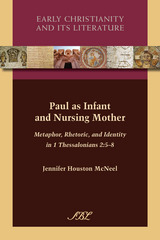
Explore the significance of maternal metaphors in the writings of a first-century male missionary and theologian
Paul employed metaphors of childbirth or breastfeeding in four out of the seven undisputed epistles. In this book, McNeel uses cognitive metaphor theory and social identity analysis to examine the meaning and function of these maternal metaphors. She asserts that metaphors carry cognitive content and that they are central to how humans process information, construct reality, and shape group identity.
Features:
- A focus on “identity” as the way in which people understand themselves in relation to one another, to society, and to those perceived as outsiders
- Examination of metaphor as part of Paul’s rhetorical strategy
- Integration of the work of philosopher Max Black with the work of cognitive linguists George Lakoff and Mark Johnson

Ancient iconography of Paul is dominated by one image: Paul as martyr. Whether he is carrying a sword—the traditional instrument of his execution—or receiving a martyr's crown from Christ, the apostle was remembered and honored for his faithfulness to the point of death. As a result, Christians created a cult of Paul, centered on particular holy sites and characterized by practices such as the telling of stories, pilgrimage, and the veneration of relics. This study integrates literary, archaeological, artistic, and liturgical evidence to describe the development of the Pauline cult within the cultural context of the late antique West.
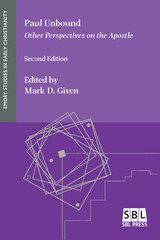
"As long as there are readers of Paul, there will be always be other perspectives."
The essays in this second edition of Paul Unbound: Other Perspectives on the Apostle provide introductions to Paul's relationship to and views on the Roman Empire, first-century economic stratification, his opponents, ethnicity, the law, Judaism, women, and Greco-Roman rhetoric. Contributors Warren Carter, Charles H. Cosgrove, A. Andrew Das, Steven J. Friesen, Mark D. Given, Deborah Krause, Mark D. Nanos, and Jerry L. Sumney have added addendums to their original essays and updated the bibliography to take into account scholarship produced in the decade since the publication of the first edition. The collection provides essential background and sets out new directions for study useful to students of the New Testament and Paul's letters.
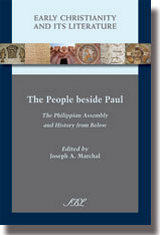
Who are the people beside Paul, and what can we know about them?
This volume brings together an international and interdisciplinary group of scholars with a broad range of expertise and a common interest: Philippi in antiquity. Each essay engages one set of contextual particularities for Paul and the ordinary people of the Philippian assembly, while simultaneously placing them in wider settings. This 'people's history' uses both traditional and more cutting-edge methods to reconsider archaeology and architecture, economy and ethnicity, prisons and priestesses, slavery, syncretism, stereotypes of Jews, the colony of Philippi, and a range of communities. The contributors are Valerie Abrahamsen, Richard S. Ascough, Robert L. Brawley, Noelle Damico, Richard A. Horsley, Joseph A. Marchal, Mark D. Nanos, Peter Oakes, Gerardo Reyes Chavez, Angela Standhartinger, Eduard Verhoef, and Antoinette Clark Wire.
Features
- An examination of the social forms and forces that shaped and affected the Philippian church
- Essays offer insight into standard questions about the letter s hymn and audience, Paul's 'opponents,' and the sites of the community and of Paul's imprisonment
- A focused exploration of more marginalized topics and groups, including women, slaves, Jews, and members of localized cults
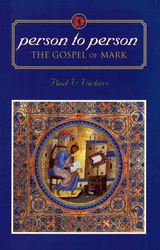
Paul Vickers grapples with the question of how God wants us to live our daily lives, and he turns to a new way of reading the gospel of Mark for answers. Vickers' insightful discussion of its rich symbolism reveals the relevance this gospel has to our lives. God, according to Vickers, is the same immediate presence for the reader of today that he was at the time of the writing of the book of Mark. Through the immediacy of his presence, in a manner unique to each reader, God urges us to examine and improve our lives. Encouraging a less self-centered engagement with the world, Person to Person: The Gospel of Mark fosters development of a more loving, more spiritually conscious soul.

This volume of the Building Bridges Seminar, Power: Divine and Human, Christian and Muslim Perspectives, comprises pairs of essays by Christians and Muslims which introduce texts for dialogical study, plus the actual text-excerpts themselves.
This new book goes far beyond mere reporting on a dialogical seminar; rather, it provides guidance and materials for constructing a similar dialogical experience on a particular topic. As a resource for comparative theology, Power: Divine and Human is unique in that it takes up a topic not usually explored in depth in Christian-Muslim conversations. It is written by scholars for scholars. However, in tone and structure, it is suitable for the non-specialist as well. Students (undergraduate and graduate), religious leaders, and motivated non-specialists will find it readable and useful. While it falls solidly in the domain of comparative theology, it can also be used in courses on dialogical reading of scripture, interreligious relations, and political philosophy.
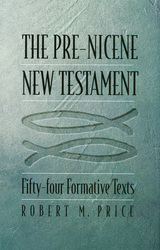
As an interpretive translation, Price’s text is both accurate and readable and is tied more closely to the Greek than most previous translations. Price conveys the meanings of words in context, carefully choosing the right phrase or idiom to convey their sense in English. For words that had a specific theological import when first written, Price leaves the Greek transliteration, giving readers archons for the fallen angels thought to be ruling the world, paraclete for encourager, andpleroma for the Gnostic godhead.
Within the collection, each book is introduced with comments about the cultural setting, information about when a document was probably written, and significant textual considerations, which together form a running commentary that continues into the footnotes. The findings of scholars, documented and summarized by Price, will come as a surprise to some readers. It appears, as Price suggests, that most of what is known about Jesus came by way of revelation to Christian oracles rather than by word of mouth as historical memory. In addition, the major characters in the New Testament, including Peter, Stephen, and Paul, appear to be composites of several historical individuals each, their stories comprising a mix of events, legend, and plot themes borrowed from the Old Testament and Greek literature.
In the New Testament world, theology developed gradually along different trajectories, with tension between the charismatic ascetics such as Marcion and Thecla, as examples, and the emerging Catholic orthodoxy of such clergy as Ignatius and Polycarp. The tension is detectable in the texts themselves, many of which represent “heretical” points of view: Gnostic, Jewish-Christian, Marcionite, and proto-orthodox, and were later edited, sometimes clumsily, in an attempt to harmonize all into one consistent theology.
What may occur to many readers, among the more striking aspects of the narratives, is that the earliest, most basic writings, such as Mark’s Gospel in inarticulate Greek, are ultimately more impressive and inspirational than the later attempts by more educated Christians to appeal to sophisticated readers with better grammar and more allusions to classical mythology and apologetic embellishments.
The critical insights and theories on display in these pages have seldom been incorporated into mainstream conservative Bible translations, and in many ways, Price has made the New Testament a whole new book for readers, allowing them, by virtue of the translation, to comprehend the meaning of the text where it is obscured by the traditional wording. Whatever usefulness teachers, students, and clergy may find here in terms of pedagogical and inspirational value, The Pre-Nicene New Testament is guaranteed to provoke further thought and conversation among the general public—hopefully toward the goal of more personal study and insights.
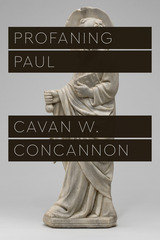
The letters of Paul have been used to support and condone a host of evils over the span of more than two millennia: racism, slavery, imperialism, misogyny, and anti-Semitism, to name a few. Despite, or in some cases because of, this history, readers of Paul have felt compelled to reappropriate his letters to fit liberal or radical politics, seeking to set right the evils done in Paul’s name. Starting with the language of excrement, refuse, and waste in Paul’s letters, Profaning Paul looks at how Paul’s “shit” is recycled and reconfigured. It asks why readers, from liberal Christians to academic biblical scholars to political theorists and philosophers, feel compelled to make Paul into a hero, mining his words for wisdom. Following the lead of feminist, queer, and minoritized scholarship, Profaning Paul asks what would happen if we stopped recycling Paul’s writings. By profaning the status of his letters as sacred texts, we might open up new avenues for imagining political figurations to meet our current and coming political, economic, and ecological challenges.
READERS
Browse our collection.
PUBLISHERS
See BiblioVault's publisher services.
STUDENT SERVICES
Files for college accessibility offices.
UChicago Accessibility Resources
home | accessibility | search | about | contact us
BiblioVault ® 2001 - 2024
The University of Chicago Press









